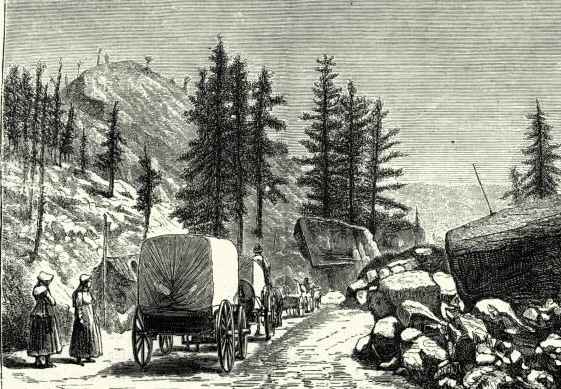






See listing of Recent and Most Popular articles on the Home Page
Senior Moments
Category: Government & Politics / Topics: Politics
Assimilated Ages
by Dan Seagren
Posted: June 29, 2008
Some thoughts on the question, "too old to be president?"…
If you read the AARP Bulletin for June 2008 you’ll recognize some of these statistics. The article Too Old To Be President? discussed past and present candidates and their ages relative to the Presidency of the U.S. Ronald Reagan was 73 when he ran against Walter Mondale, 56. JF Kennedy was 43 and Nixon was 46. Now, Obama is 46, McCain is 71 and Hilary, 60. Eight Presidents began their first term in their 40s. None began a first term in their 70s. You can join AARP at 50 but your Social Security begins at 67, not 65. Then there are the issues of health, experience, expertise, voting pattern and potential statesmanship vs. partisanship.
So, is 46 too young? Is 71 too old? Does experience offset youth? Are old illnesses and injuries a liability or current ailments detrimental? Is wealth (or the ability to raise funds) a major factor? These are questions the electorate will be facing along with other challenges.
AARP does us a favor by concentrating on those who have reached the loftier side of fifty as well as those well beyond. Years ago I was asked to revise a book on Junior High boys (grades 7-9). When asked why me, I was informed among other reasons that this age wasn’t the most popular for writers (or others such as teachers). There was a certain aspiration, for instance, for Junior High teachers to aspire to become High School teachers. When the book, Letters to Chip, was published, the Publishers wanted a similar book for girls. Again, no takers. So, they approached me to see if I would pen a book possibly in my wife’s name. Ultimately, I wrote a sequel, Letters to Cindy. They have been long out of print but both were an enjoyable challenge.
This happens. In many communities, churches, and neighborhoods, seniors have been neglected. Not necessarily discriminated against but somehow have managed to be ignored or overlooked. This may also be true of high school graduates who move from lofty high school seniors to lowly freshmen or into the underemployed or unemployable category.
In the 1930s and early ‘40s, our church, moderate in size, in addition to Sunday School for all ages, had what was called a Young Peoples Society. This was administered by the youth of the church, basically high school into the 20s. However, the meetings were held in the social hall, not the sanctuary, and were attended by youth, families and yes, seniors. The programs were geared toward the youth but everyone benefited.
I remember a debate between some articulate high school seniors and some salty twenty-plus year olds. I don’t remember who won but the topic still lingers in my memory. Resolved: That the Accomplishments of Moses were Greater than those of Paul. Heady stuff for a young teenager but apropos for the adults who attended. Then things changed and the church went for Jr. and Sr. Hi Leagues and the Young Peoples Society faded away.
I may be sticking my neck out, but there was something inviting about the old Society with its mixed ages that were entertained and edified by the young‘uns. There are some distinct advantages of mixing ages whether in church, neighborhoods or in politics.
Having said this, there are also good reasons for having peer-type activities where juniors and seniors meet separately. In all probability, it wouldn’t be all bad if McCain picked a junior and Obama chose a senior as running mates. It is quite understandable that the US Senate limits its senators to two terms while the House of Representatives allows unlimited terms.
In short, we need both separation and inclusion in our lives. The hard part is making them work effectively without differentiating against either.
Search all articles by Dan Seagren
Dan Seagren is an active retiree whose writings reflect his life as a Pastor, author of several books, and service as a Chaplain in a Covenant Retirement Community. • E-mail the author (su.nergaesnad@brabnad*) • Author's website (personal or primary**)* For web-based email, you may need to copy and paste the address yourself.
** opens in a new tab or window. Close it to return here.
Posted: June 29, 2008 Accessed 226 times
![]() Go to the list of most recent Senior Moments Articles
Go to the list of most recent Senior Moments Articles
![]() Search Senior Moments (You can expand the search to the entire site)
Search Senior Moments (You can expand the search to the entire site)
![]() Go to the list of Most Recent and Most Popular Articles across the site (Home Page)
Go to the list of Most Recent and Most Popular Articles across the site (Home Page)
 Loading requested view...
Loading requested view...